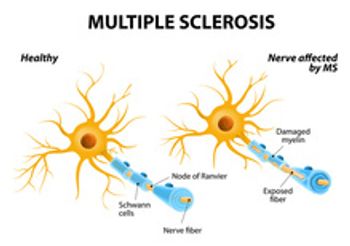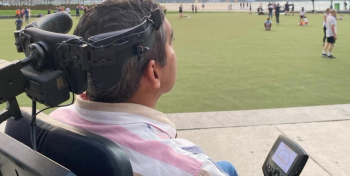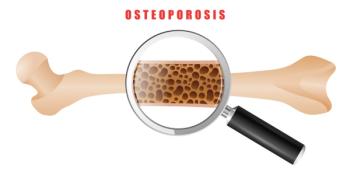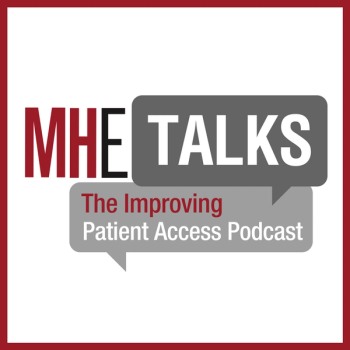
This is the first study to examine the effects of vibration training on changing cognition and quality of life in people with multiple sclerosis.

This is the first study to examine the effects of vibration training on changing cognition and quality of life in people with multiple sclerosis.

The lack of biomarkers for progressive multiple sclerosis has made the development of new treatments much more difficult for this form of the disease.

Screening for depression also should happen quickly to maintain quality of life, two new studies of multiple sclerosis indicate.

Anthony Feinstein, Ph.D., of the University of Toronto, author of a new book about multiple sclerosis and mood, says clinicians and patients need to pay more attention to the effects that depression has on the cognitive abilities of patients with the disease.

Study in Czech Republic followed 392 patients for approximately four years.

Blood-based biomarker test can be used to assess disease activity in patients with multiple sclerosis and for treatment response monitoring.


Review of 28 studies suggests role for CBD and THC as therapy for MS but evidence base needs to be stronger.

The race is on to be the first-approved Bruton tyrosine kinase inhibitor. Meanwhile, trials are underway to test statins and metformin as treatments for multiple sclerosis.

Researchers say kappa free light chain tests would be less costly and produce results sooner than the oligoclonal band tests.

The 30-minute documentary by a filmmaker with primary-progressive multiple sclerosis doesn’t settle for easy answers about the causes of the disease.

Analysis of answers to online survey shows that telehealth use is high among people with multiple sclerosis (MS) amid the COVID-19 pandemic. Telehealth may be an appealing option for patients with MS who have physical impairments that make traveling to in-person appointments difficult.

A recent meta-analysis shows that a large proportion of people with multiple sclerosis have osteopenia or osteoarthritis. Lack of mobility and vitamin D deficiencies may play a causative role.

Patient engagement with digital channels increased by 17% within the MS population over time rather than managing their prescriptions for specialty meds over the phone, according to a study.

New technology detects changes in the brain beyond the lesions seen with normal MRI scans.

Antibodies level went after a third dose but the response was weaker among those being treated with fingolimod than among those taking anti-CD20 treatments such as Rituxan.

German research team finds that 11% of those who quit the drug for pregnancy had “clinically meaningful disability” one-year postpartum. They don’t advise against quitting the drug but say their findings suggest that patients should be informed of the risk.

A longitudinal study of 10 million people in the U.S. military shows the link. The researchers say genetic predisposition, other factors are likely needed for the viral infection to cause multiple sclerosis.

Multiple sclerosis is dependably among the most expensive chronic diseases to treat, but there are ways to reduce the size of the bill.

Thomas P. Leist, MD, PhD, a neurologist and professor of Multiple Sclerosis at Jefferson University Hospitals, is the latest guest featured on MHE Talks: Improving Patient Access podcast. In this episode, Thomas spoke with Peter Wehrwein, senior editor of Managed Healthcare Executive, about accessing care amongst patients with MS through therapies, health insurance barriers, options of step therapy and more.

Results from research analyzing data of females with multiple sclerosis (MS) who became pregnant, and the impact of adherence to their disease-modifying therapies (DMTs) on hospital utilization and cost, were recently released by AllianceRx Walgreens Prime.

Managed Healthcare Executive's top five MS articles of 2020.

Earlier treatment of multiple sclerosis with disease-modifying therapy reduced the chances of a sharp decrease in income, according to Swedish researchers.

University of Vermont researchers say their data show there are alternative approaches to using gadolinium-based contrast agents in follow-up MRIs of patients with multiple sclerosis.

A Phase 3 trial is in the works in the U.S. for Sativex (nabiximols), an oral spray that contains cannabis extracts, in treating spasticity — muscle stiffness or spasms — associated with multiple sclerosis (MS).